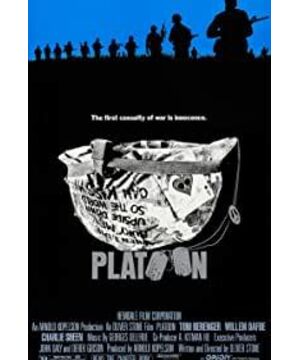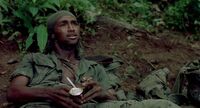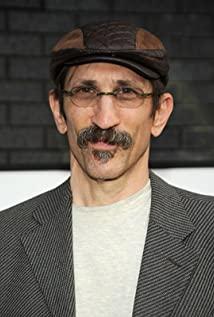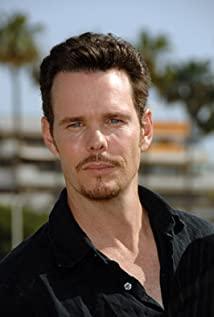"Field Platoon" is such a movie, from the perspective of a participant, it shows what he sees and hears, everything he understands, all the chaotic and unclear, one by one in front of your eyes. The audience cannot easily judge good and evil, as if this is the essence of war. "Hell is an unreasonable place. This is exactly what the situation I am in makes me feel, hell." Taylor wrote in a letter to his grandmother.
"This is a movie that has no legend, no metaphor, and does not convey too much meaning, but only restores the original appearance of war." Western scholars commented this way. A famous director once said that you can't make an anti-war movie, because any war movie is full of energy and full of adventure, which will only make the battle look full of fun in the end. But in the narrative of the field platoon, everything seems so unreasonable, and it is difficult to distinguish between black and white. You feel angry, sad, surprised, every soldier is full of exhaustion, marching, camping, willpower and physical strength are about to reach their limits, they can only rely on non-stop smoking to stay awake. The reason most people insist is just to be able to leave the battlefield alive and enjoy the life of the future, the sunshine of California, nothing more. The energy is almost exhausted, and the adventure is only thrilling. The contradictions, contrasts, and strong sense of irony in the film made this film a very deep impression on me.
The first scene of the movie is the scene of recruits coming to the battlefield, but the plane carrying them to the battlefield, the next passengers are cold corpses in black plastic bags, they are intertwined in the picture, life and death rubbing. Shoulder, this is a daily theme in war. The war distorted people's understanding of the value of life. The soldiers believe that the life of the recruits is less important than that of the veterans, because the recruits know nothing about combat skills. On the thunderstorm night when the first comrade-in-arms died, Eles, who was called the "Jesus" on the battlefield, said that if he was allowed to live a few more days and learn more, maybe he would not die. Can the value of life be compared? What is the value of life linked to? age? experience? Knowledge? healthy? We cannot judge the value of life, because everyone has their own understanding of the value and meaning of life, but on the battlefield, perhaps experience can save their own lives and the lives of their comrades, so they can rashly identify Is the life of a veteran more valuable? This is the persecution of human nature by the threat of death.
Hatred also affects life and death in the battlefield. When he saw human bones for the first time, Taylor felt nauseated, but Barnes said that it was a Vietnamese who died and died well. In the Meilai Village tragedy, a soldier shot and killed a pig on his way into the village. The pig would not take a gun and would not resist, but the pig would also die. A soldier shot "The Cripple" with bullets, asked him to perform a dance, and eventually beat him and his mother to death with a gun. The soldier didn't have the slightest intention of repentance. He even admired the scene of their death and suggested "Let's kill everyone here." Another group of soldiers prepared to rape a Vietnamese girl in the village. "Vietnamese are human too," said Taylor, who prevented this incident from happening. The soldiers seemed to attribute the pain and death on the battlefield to the presence of the Vietnamese. If their logic is that the Viet Cong Army is the "enemy", it is reasonable to kill the "enemy". What about the wife of the "enemy", the son of the "enemy", and the parents of the "enemy"? On the personal level of the fighters, war seems to have legalized killing. Only by killing them can I survive. In order to survive, I have to kill them. Yes, what if there is a Vietcong soldier hidden in that village? What if that village is indeed a Viet Cong base? The fear of death made them rather kill a hundred by mistake than let go of one. In the eyes of bystanders, perhaps Elise's choice is "just", but once any one of these "just in case" comes true, is such justice desirable? Many decisions made in war are difficult to judge right from wrong, but they just happened or existed.
Since so many young people have to participate in the war, what is the meaning of the war? Is it to serve the country, to fight for freedom and society? This is another contradiction and irony in the film. Fighting for the noble motherland is a group of poor, disrespectful, and disregarded people, who can be said to have almost nothing. They are the bottom of the society. In the United States, the military is a good job, and the salary is enough to feed the family. So they choose this "career" and use their lives to gamble. Taylor is an idealist. His grandfather and father participated in World War I and World War II respectively. He volunteered to join the army in order to continue the tradition of the family, and was ridiculed by his comrades that it was an idea that "rich people" would have. Among them, there are two types of people. One type of people counts the days to go back from the first day. They think that there are no cowards on the battlefield. They live on the battlefield just to be able to leave the battlefield alive. The other kind of people are like Barnes. They are used to the killing on the battlefield. They feel that there is nothing wrong with the battlefield. They can do whatever they want. The only thing to worry about is death. The coming of death is only a momentary thing, without warning. This makes them more fearless. So when Tyler asked Elise if he believed in what he was fighting for, Elise said, I used to believe, but now I don’t believe it. One day we will lose. Regardless of moral justice or moral justice, it is easier to win the war against aggression, because people have something to fight for, which is faith. It is their own land that loses, and their wives, children, brothers and sisters will be sacrificed. This is the future of this generation and future generations. They are willing to sacrifice their lives for common ideals and beliefs. For these soldiers, the final victory or defeat of the war does not have much impact on them, so winning or losing is far less important than life. Therefore, they chose to believe in Barnes who had seven near-death experiences. They believed that "Scarface" Barnes could lead them through this war, and their lieutenant "can't make it", that kind of idiot Can't survive this war.
In the middle and late stages of the movie, infighting, suspicion, and suspicion appeared in the field platoon. The weak and incompetent lieutenant was actually completely subject to the control of Barnes, who was "disobeying the rules." Take the opportunity to shoot, trying to kill Elise. This shot, that bullet, completely separated from justice and truth, shot at Elise. In the end, Elais was not killed by that shot, but died under the gun of the Viet Cong. Elise is really like Jesus on this battlefield. He cares about recruits, is brave and good at fighting, and abides by principles, and refuses to kill innocent people indiscriminately. But in the end, he was shot by his teammates and died under random guns. When Taylor wanted to avenge Elise, his teammates said, forget it. If heaven really exists, then Elise must have laughed in heaven. There is only pain in this world. What good is it? Elise is the tragic hero in this movie.
After Elise's death, Taylor seemed to have really adapted to the cruel life on the battlefield. He became warlike and heroic. In the last battle he experienced, he was brave enough to charge at the front, fighting against a large number of Viet Cong soldiers. After a tragic bombing, few soldiers survived, and Taylor shot and killed Barnes, avenging Elise. Yes, Barnes shot and killed Elias. He was guilty, but is Taylor’s shot justified? If we all use tooth for tooth, blood for blood, and resolve disputes and problems in this way, then what kind of order is there in this society? Taylor is not ashamed of Barnes, but his final behavior is not essentially different from Barnes. Our definitions of justice and evil sometimes completely fail on the battlefield. From the perspective of a warrior, the enemy killed your brother who was born to death. Even if they disarmed and surrendered, are you willing to let them go? It is these people who killed your comrades, but when they put down their guns, once you choose to shoot them again, it is unlawful. Perhaps, as bystanders, we will think that it is justice to choose the law to sanction the enemy. But people are nothing but flesh and blood. When you are not on the scene, you can't feel the anger and fear. Naturally, it is difficult to imagine the life and death between one thought on the battlefield.
The two wounded experiences brought Tyler and his comrades a return flight ticket. From the plane leaving the battlefield, he looked at the land he was about to flee. The expressionless bulldozer was burying piles of corpses. The yellow one, like the scene of harvesting rice in the farmland in late autumn, is so indifferent and ruthless, without a single tear. Soon new fighters will come again, and soon there will be new battles. This is the alternation of life and death in the war. There was no crying on the battlefield, but a familiar voice seemed to come from far away, sobbing cries, who was it?
The sergeant who survived and was not injured was promoted to lieutenant, but there was no smile in his eyes.
View more about Platoon reviews











